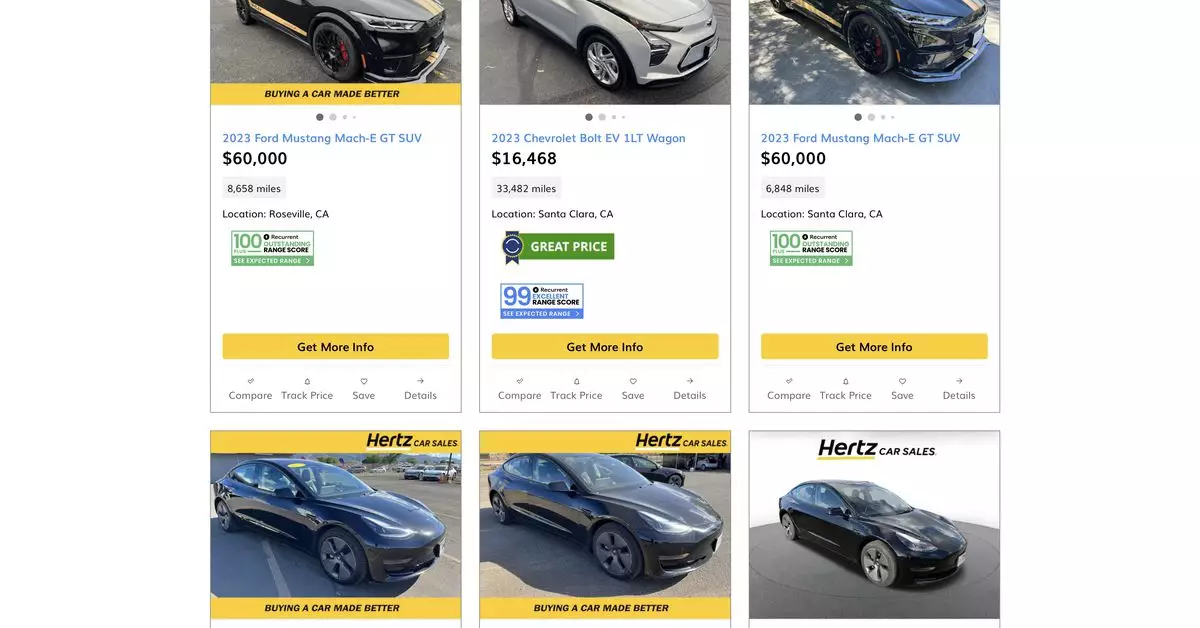In a bold maneuver to revitalize its rental strategy and broaden its market appeal, Hertz has started reaching out to customers of its electric vehicle (EV) fleet with enticing offers—proposing that they can buy the cars they’ve been renting. This initiative appears to capitalize on the growing interest in electric vehicles while simultaneously addressing challenges faced in the traditional rental framework.
Recent reports indicate that Hertz is extending purchase offers for popular EV models, such as Tesla, Chevy Bolt, and Polestar 2, at prices that align closely with current market values. For instance, one Reddit user revealed that they were quoted approximately $17,913 for a 2023 Model 3 rental, despite the vehicle having accumulated 30,000 miles—less than competing listings. These offers similarly include a limited warranty for the powertrain and a buy-back option within a week, providing a safety net for potential buyers. Although these alluring prices may seem beneficial, one must consider the implications of a rental vehicle transitioning into a used vehicle asset, especially with the wear and tear accumulated during its temporary ownership.
Jamie Line, Hertz’s communications director, clarified that the initiative is not simply a reaction to market demands but rather a planned strategy to enhance customer engagement. By linking rental clients to the company’s car sales platform, Hertz aims to elevate awareness about its offerings while catering to a potential niche market—the renters who may be contemplating a vehicle purchase. Such a strategy possesses the dual benefit of potentially increasing sales for Hertz and simultaneously allowing customers an opportunity to acquire the vehicles they are already familiar with.
Despite Hertz’s innovative approach, the backdrop reveals a convoluted narrative. Last year, the company initially faced setbacks in its plans to largely electrify its fleet due to sluggish demand and mechanical complications with certain models, particularly the Tesla Model 3. The fallout from these challenges led to strategic withdrawals from commitments, such as halting orders for Polestar 2 vehicles and deciding to decommission a significant portion of its Tesla inventory. These actions reflect a blend of optimism about EVs and the realities of operational limitations that companies like Hertz must navigate.
Hertz’s current strategy underscores a significant transition within the automotive rental landscape, resonating with broader trends in consumer preferences towards sustainability and electric mobility. As manufacturers ramp up EV production and public infrastructure improves, the interplay between rental services and sales may redefine how consumers interact with automotive ownership. Thus, while Hertz’s actions denote a commendable effort to innovate within the industry, they serve as a reminder of the inherent unpredictability of consumer behavior in the realm of electric vehicles.
Hertz is embarking on a path that mixes creativity with necessity, declaring their presence within the EV marketplace amid a backdrop of challenges, with an ambition to ultimately craft a symbiotic relationship between rental experiences and ownership opportunities.

